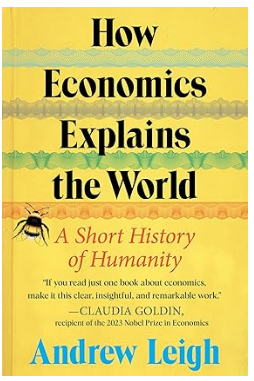 ● The Greatest of All Plagues: How Economic Inequality Shaped Political Thought from Plato to Marx
● The Greatest of All Plagues: How Economic Inequality Shaped Political Thought from Plato to Marx
David Lay Williams
Summary via publisher (Princeton U. Press)
Economic inequality is one of the most daunting challenges of our time, with public debate often turning to questions of whether it is an inevitable outcome of economic systems and what, if anything, can be done about it. But why, exactly, should inequality worry us? The Greatest of All Plagues demonstrates that this underlying question has been a central preoccupation of some of the most eminent political thinkers of the Western intellectual tradition.
 ● You Weren’t Supposed To See That: Secrets Every Investor Should Know
● You Weren’t Supposed To See That: Secrets Every Investor Should Know
Joshua M. Brown
Summary via publisher (Harriman House)
There are secret ways of seeing the world of finance that every investor should know. Overlooked things that tip the balance from failure to success. Hidden truths that make the critical difference between understanding the world and being dangerously naive. And surprising realities that determine whether or not you and your family are on the path to generational wealth. In You Weren’t Supposed to See That, Downtown Josh Brown—the original Wall Street blogger, star of CNBC’s Halftime Report, and manager of billions of dollars as CEO of Ritholtz Wealth Management—collects and shares the most important of these secrets. Drawing on 15 years of The Reformed Broker, the most-read financial blog in the world, Josh revisits, updates, and expands on the best of his wildly popular writing. As he does so, he helps you to discover all the most important, surprising, and sometimes painfully true secrets of finance, investing, and Wall Street that you need to know to thrive today.
 ● How Economics Explains the World: A Short History of Humanity
● How Economics Explains the World: A Short History of Humanity
Andrew Leigh
Summary via publisher (Mariner Books/Harper Collins)
A sweeping, engrossing history of how economic forces have shaped the world—all in under 200 pages. In How Economics Explains the World, Harvard-trained economist Andrew Leigh presents a new way to understand the human story. From the dawn of agriculture to AI, here is story of how ingenuity, greed, and desire for betterment have, to an astonishing degree, determined our past, present, and future.
![]() ● How Silicon Valley Unleashed Techno-Feudalism: The Making of the Digital Economy
● How Silicon Valley Unleashed Techno-Feudalism: The Making of the Digital Economy
Cedric Durand
Excerpt via Jacobin
With his notion of creative destruction, the economist Joseph Schumpeter formulated one of the most influential economic ideas of the last century. Following in Marx’s footsteps, and setting himself against approaches based on equilibrium, he insisted that capitalism’s dynamism relies on a tumultuous process of change in economic structures: the “fundamental impulse that sets and keeps the capitalist engine in motion comes from the new consumer goods, the new methods of production or transportation, the new markets, the new forms of industrial organization that capitalist enterprise creates.”
The theory of economic growth that gives the Silicon Valley consensus its scholarly underpinning has taken up this concept and integrated it into its models. Its credo: innovation drives growth by disseminating new technologies and eliminating obsolete methods. Yet, if we do take such a perspective, the trajectory of capitalism today can only appear as a paradox.
 ● The New Nature of Business: The Path to Prosperity and Sustainability
● The New Nature of Business: The Path to Prosperity and Sustainability
Andre Hoffmann and Peter Vanham
Summary via publisher (Wiley)
In The New Nature of Business: The Path to Prosperity and Sustainability, businessman Andre Hoffmann and journalist Peter Vanham describe how companies should change their ways to have continued success, and why the current modus operandi is not working. They present a template for creating “sustainable prosperity”, and case-studies of companies that survived and thrived by opting for change. In doing so, they provide a way out of long-standing dilemmas, such as how to balance business needs with impact on nature, shareholders with stakeholders, and short-term vs. long-term profits.
Please note that the links to books above are affiliate links with Amazon.com and James Picerno (a.k.a. The Capital Spectator) earns money if you buy one of the titles listed. Also note that you will not pay extra for a book even though it generates revenue for The Capital Spectator. By purchasing books through this site, you provide support for The Capital Spectator’s free content. Thank you!